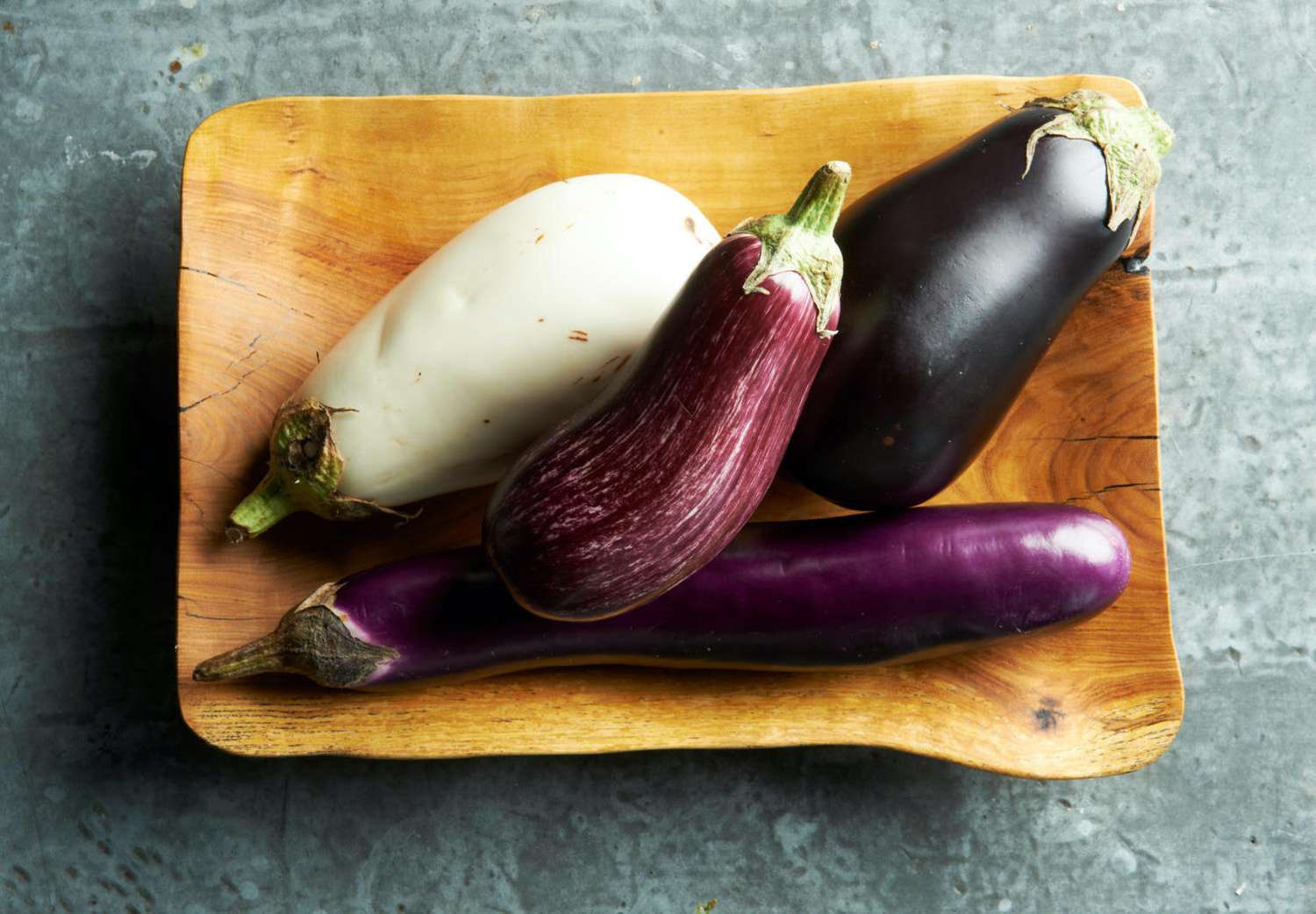

Articles
How To Store Eggplant
Modified: February 20, 2024
Learn the best methods for storing eggplant in this informative article. Follow these tips to keep your eggplants fresh and flavorful for longer.
(Many of the links in this article redirect to a specific reviewed product. Your purchase of these products through affiliate links helps to generate commission for Storables.com, at no extra cost. Learn more)
Introduction
Welcome to our comprehensive guide on how to store eggplant. Whether you’ve harvested fresh eggplants from your garden or bought them from a grocery store, it’s important to know the proper storage techniques to maximize their shelf life and maintain their quality. In this article, we will walk you through the steps of harvesting and cleaning eggplants, choosing the right storage method, and provide tips for maintaining their freshness. So let’s dive in and discover the secrets to storing eggplant successfully!
Key Takeaways:
- Proper harvesting and cleaning techniques are essential for maximizing eggplant shelf life. Follow guidelines for timing, cutting, cleaning, and drying to ensure optimal storage conditions.
- Choose the right storage method based on quantity and intended usage. Room temperature, refrigerator, and freezing options offer flexibility for short-term and long-term storage needs.
Read more: How To Store Eggplant For Winter
Proper Harvesting and Cleaning Techniques
Harvesting eggplants at the right time and cleaning them properly are crucial steps to ensure their longevity in storage. Here are some guidelines to follow:
- Timing: Eggplants should be harvested when they have reached full size and have a glossy, vibrant skin color. This is typically when they are firm to the touch and have a uniform color throughout.
- Cutting: To harvest an eggplant, gently cut the stem about an inch above the fruit using a sharp knife or pruning shears. Be careful not to damage the skin while cutting to prevent spoilage.
- Cleaning: Once harvested, it’s important to clean the eggplant to remove any dirt or residue. Rinse it under cool running water and gently scrub the skin with a soft brush or sponge. Avoid using any harsh detergents or chemicals, as they can affect the taste and texture of the eggplant.
- Drying: After cleaning, pat dry the eggplant using a clean paper towel or kitchen cloth. Make sure to remove any excess moisture, as wetness can promote mold and decay during storage.
Following these harvesting and cleaning techniques will help ensure that your eggplants are in optimal condition for storage.
Choosing the Right Storage Method
When it comes to storing eggplants, choosing the right storage method is key to maintaining their freshness and prolonging their shelf life. Here are a few options to consider:
- Room Temperature: Eggplants can be stored at room temperature, but this method is best for short-term storage, usually up to a week. Place the eggplants in a cool, dry place, away from direct sunlight and other fruits or vegetables that release ethylene gas, which can accelerate spoilage. Make sure to check the eggplants regularly for any signs of decay or soft spots.
- Refrigerator: Storing eggplants in the refrigerator can help extend their shelf life for up to two weeks. Wrap each eggplant individually in a paper towel and place them in a perforated plastic bag or a vegetable drawer. The paper towel helps absorb excess moisture and prevents the eggplants from becoming too damp. Avoid placing the eggplants near fruits like apples or tomatoes, as they release ethylene gas and can cause the eggplants to ripen faster.
- Freezing: Freezing eggplants is an excellent method for long-term storage. However, it’s important to note that freezing can alter the texture of the eggplant, making it less suitable for certain dishes like stir-fries or salads. To freeze eggplants, first blanch them in boiling water for a couple of minutes, then transfer them to an ice bath to stop the cooking process. Pat them dry, slice or dice them as desired, and pack them into airtight containers or freezer bags. Be sure to label and date the containers before placing them in the freezer.
Consider the quantity of eggplants you have and your intended usage to determine the most suitable storage method for your needs. Remember to assess the condition of the eggplants before storing them to ensure that they are fresh and free from any visible damage or signs of spoilage.
Storing Eggplant at Room Temperature
If you plan to use your eggplants within a week, storing them at room temperature is a viable option. Here’s how to do it:
- Prepare the eggplants: Make sure the eggplants are clean and dry before storing them. Remove any stems or leaves, and gently wipe them with a damp cloth to remove any dirt or debris.
- Choose a suitable location: Find a cool and well-ventilated area in your kitchen or pantry to store the eggplants. Avoid placing them near sources of heat or direct sunlight, as this can cause them to ripen and spoil quicker.
- Arrange them properly: Place the eggplants in a single layer on a shelf or plate, ensuring they are not touching each other. Proper airflow around the eggplants helps prevent moisture buildup and slows down the ripening process.
- Check for freshness: Regularly inspect the eggplants for any signs of decay, such as wrinkled skin, soft spots, or a foul odor. Remove any spoiled eggplants immediately to prevent them from contaminating the others.
Storing eggplants at room temperature allows them to retain their flavor and texture. However, keep in mind that the shelf life is limited, and they should be used within a week for the best quality.
Remember, if you notice any signs of spoilage or deterioration, it’s better to discard the eggplants rather than risking foodborne illnesses or an unpleasant eating experience.
Store eggplant in a cool, dry place, away from direct sunlight. Do not refrigerate unless cut, then store in the fridge wrapped in plastic wrap for up to 5 days.
Preserving Eggplant in the Refrigerator
If you want to extend the shelf life of your eggplants for up to two weeks, storing them in the refrigerator is the ideal method. Here’s how to preserve eggplant in the fridge:
- Prep the eggplants: Rinse the eggplants under cool running water to remove any dirt. Pat them dry with a paper towel or kitchen cloth.
- Wrap individually: Wrap each eggplant individually in a paper towel. The paper towel helps absorb excess moisture and prevent the eggplants from becoming overly damp, which can cause them to spoil faster.
- Choose the right storage spot: Place the wrapped eggplants in a perforated plastic bag or a vegetable drawer in the refrigerator. The perforations allow for proper air circulation, maintaining the freshness of the eggplants.
- Avoid ethylene-producing fruits: Keep the eggplants away from fruits like apples, tomatoes, and bananas, as they release ethylene gas, which can speed up the ripening process of the eggplants.
- Regularly check for spoilage: Periodically inspect the eggplants for any signs of decay, such as mold, discoloration, or a slimy texture. If you notice any spoiled eggplants, remove them immediately to prevent the spread of spoilage to the rest.
Storing eggplants in the refrigerator not only prolongs their shelf life but also helps maintain their flavor and texture. Keep in mind that refrigeration may cause slight discoloration of the eggplant skin, but this doesn’t affect the quality or taste of the flesh within.
Remember to use the refrigerated eggplants within two weeks for the best results. If you have a surplus of eggplants that you won’t be able to use within that timeframe, consider freezing them for long-term storage.
Read more: How To Store Cut Eggplant
Freezing Eggplant for Long-Term Storage
Freezing eggplant is a great option if you have a surplus and want to enjoy them throughout the year. Although the texture may change slightly after thawing, frozen eggplant is still perfect for use in cooked dishes like casseroles, stews, and sauces. Here’s how to freeze eggplant:
- Prep the eggplant: Wash the eggplant thoroughly and trim off the stem. Peel the skin if desired, although it is not necessary.
- Blanching: Cut the eggplant into slices, chunks, or cubes, depending on your preference. Bring a pot of water to a boil and carefully add the eggplant pieces. Blanch them for about 3-4 minutes until they become slightly tender.
- Cooling: Remove the blanched eggplant pieces from the boiling water and transfer them immediately into an ice bath. This halts the cooking process and helps preserve their color and texture.
- Drying: Once the eggplant has cooled down, pat them dry with a clean cloth or paper towel to remove excess moisture.
- Packaging: Arrange the dried eggplant pieces in a single layer on a parchment-lined baking sheet or freezer-safe tray. Place them in the freezer for a few hours until frozen solid. This individual freezing method prevents the pieces from sticking together.
- Transfer to containers: Once the eggplant pieces are frozen, transfer them into airtight freezer bags or containers. Label the containers with the date to keep track of their freshness.
- Freezer storage: Store the frozen eggplant in the coldest part of your freezer, such as the back or bottom shelf, to maintain a consistent temperature.
Frozen eggplant can be stored for up to eight months, but for the best quality, it is recommended to use them within three to six months. When ready to use, simply thaw the frozen eggplant in the refrigerator overnight or cook them directly from frozen in your desired recipes.
Remember that thawed eggplant will have a softer texture and may release water. It is best to use them in cooked dishes rather than raw preparations.
Tips for Maintaining Eggplant Quality
To ensure that your stored eggplants remain fresh and maintain their quality, here are some tips to keep in mind:
- Avoid washing before storage: It’s best to refrain from washing the eggplants before storing them. Moisture can promote spoilage, so it’s better to clean them just before use.
- Handle with care: Eggplants are delicate fruits, so handle them gently to prevent bruising and damage to the skin. Rough handling can accelerate the decay process.
- Store away from ethylene-producing fruits: As mentioned earlier, keep your eggplants away from ethylene-producing fruits like apples, tomatoes, and bananas. Ethylene gas can cause the eggplants to ripen and spoil faster.
- Regularly check for spoilage: Take a quick look at your stored eggplants every few days to ensure that they are still in good condition. Remove any eggplants that show signs of decay or mold to prevent the spread of spoilage.
- Use the oldest ones first: When you have multiple eggplants in storage, it’s best to use the older ones first. This ensures that you utilize them before they begin to deteriorate.
- Keep track of storage time: If you have labeled your storage containers, make sure to keep track of the dates. This will help you prioritize the usage of eggplants and prevent them from sitting in storage for too long.
- Properly seal frozen eggplants: When freezing eggplants, ensure that you properly seal the containers or freezer bags to prevent exposure to air, which can cause freezer burn. This will help maintain the quality of the frozen eggplant.
By following these tips, you can help prolong the shelf life of your eggplants and ensure that they remain fresh and flavorful until you’re ready to use them.
Using Up Stored Eggplant
Now that you have successfully stored your eggplants using the various methods mentioned, it’s time to put them to good use and enjoy their delicious flavor in your culinary creations. Here are some ideas on how to utilize your stored eggplant:
- Roasted Eggplant: Roasting eggplant enhances its natural sweetness and brings out a smoky flavor. Slice the eggplant into thick rounds or cubes, toss them in olive oil, sprinkle with salt and pepper, and roast in the oven until tender and golden brown. Enjoy roasted eggplant as a side dish, add it to salads, or use it as a topping for pizzas or sandwiches.
- Eggplant Parmesan: This classic Italian dish is a favorite for eggplant lovers. Slice the eggplant into thin rounds, dip them in beaten egg, coat them in breadcrumbs, and fry them until crispy. Layer the fried eggplant slices with tomato sauce and mozzarella cheese, then bake until the cheese is melted and bubbly. Serve with pasta for a satisfying meal.
- Baba Ganoush: A popular Middle Eastern dip, baba ganoush is made from roasted eggplant, tahini, lemon juice, garlic, and spices. Simply roast the eggplant until soft, scoop out the flesh, and blend it with the other ingredients until smooth. Serve baba ganoush with pita bread or as a spread for sandwiches and wraps.
- Eggplant Curry: Eggplant lends itself well to curries and stews. Cut the eggplant into bite-sized pieces and cook them with onion, garlic, ginger, and a blend of spices like cumin, coriander, and turmeric. Add coconut milk or tomato sauce for a creamy and flavorful curry. Serve with rice or naan bread for a satisfying meal.
- Eggplant Stir-fry: Sauté sliced eggplant with other vegetables like bell peppers, onions, and mushrooms for a delicious and healthy stir-fry. Add your choice of protein such as tofu, chicken, or shrimp, and season with soy sauce, ginger, and garlic. Serve it over steamed rice or noodles for a quick and tasty meal.
- Eggplant Pizzas: Use sliced eggplant as a substitute for pizza crust. Place the eggplant slices on a baking sheet, top with tomato sauce, cheese, and your favorite pizza toppings. Bake until the cheese melts and the eggplant is tender. It’s a low-carb and gluten-free alternative to traditional pizza.
These are just a few suggestions to spark your creativity in the kitchen. Feel free to experiment and explore different cuisines and recipes that feature eggplant as the star ingredient. Get inspired and make the most out of your stored eggplants!
Frequently Asked Questions about How To Store Eggplant
Was this page helpful?
At Storables.com, we guarantee accurate and reliable information. Our content, validated by Expert Board Contributors, is crafted following stringent Editorial Policies. We're committed to providing you with well-researched, expert-backed insights for all your informational needs.
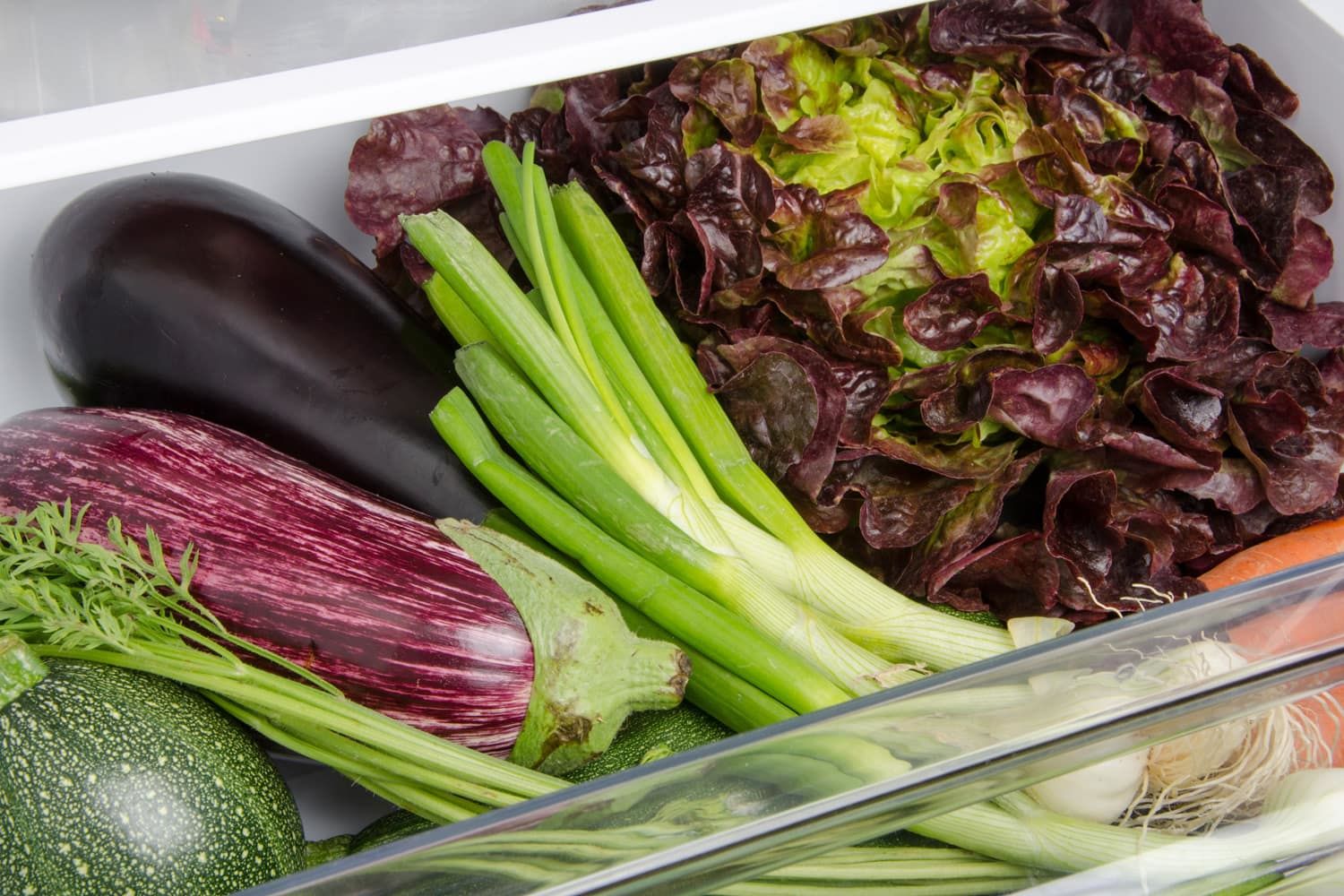
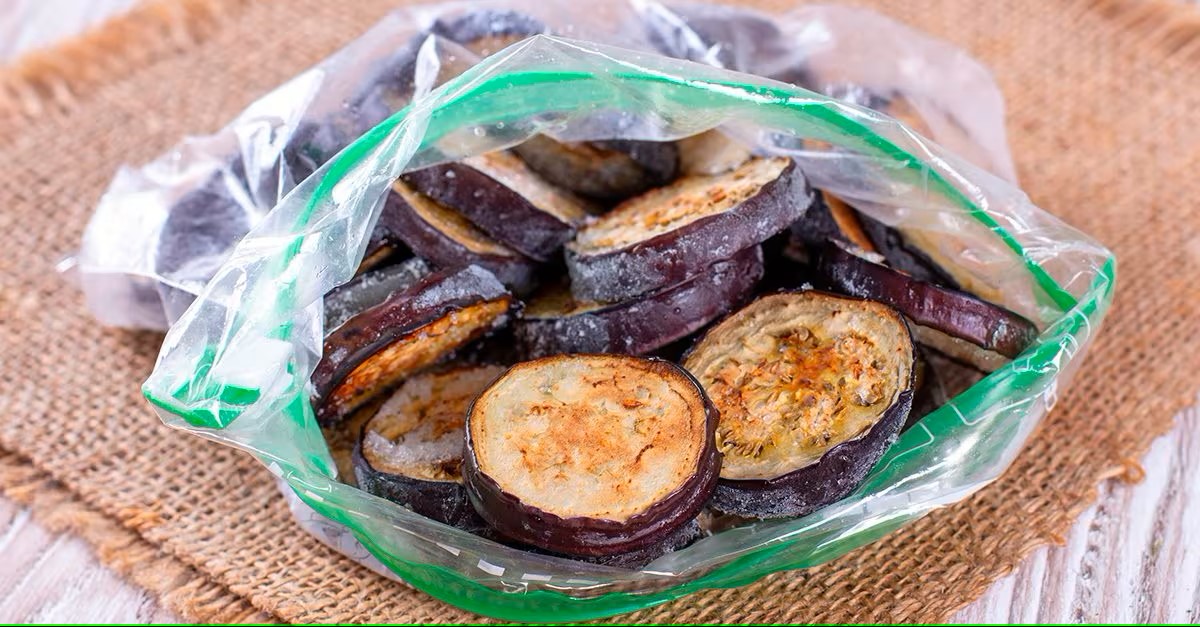

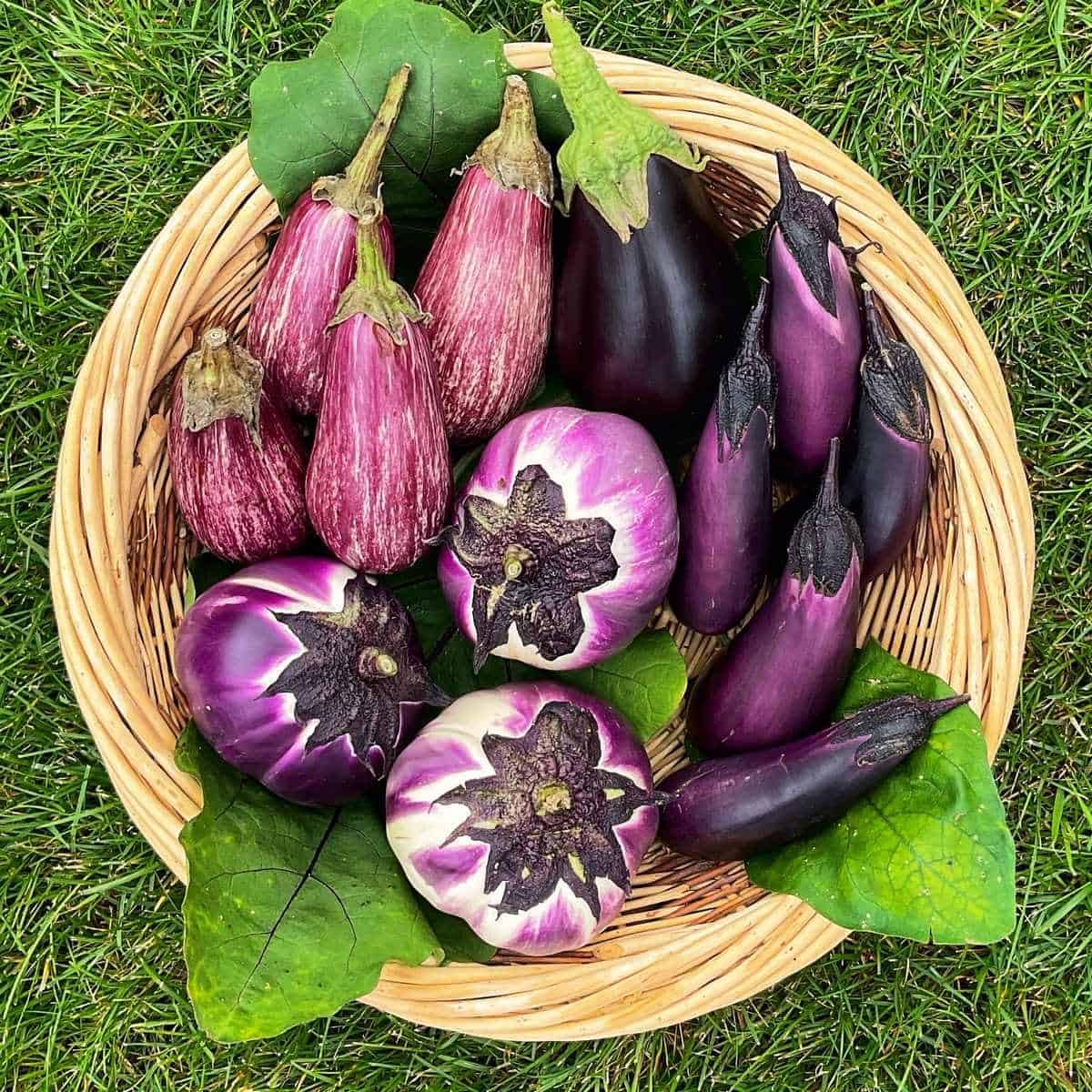
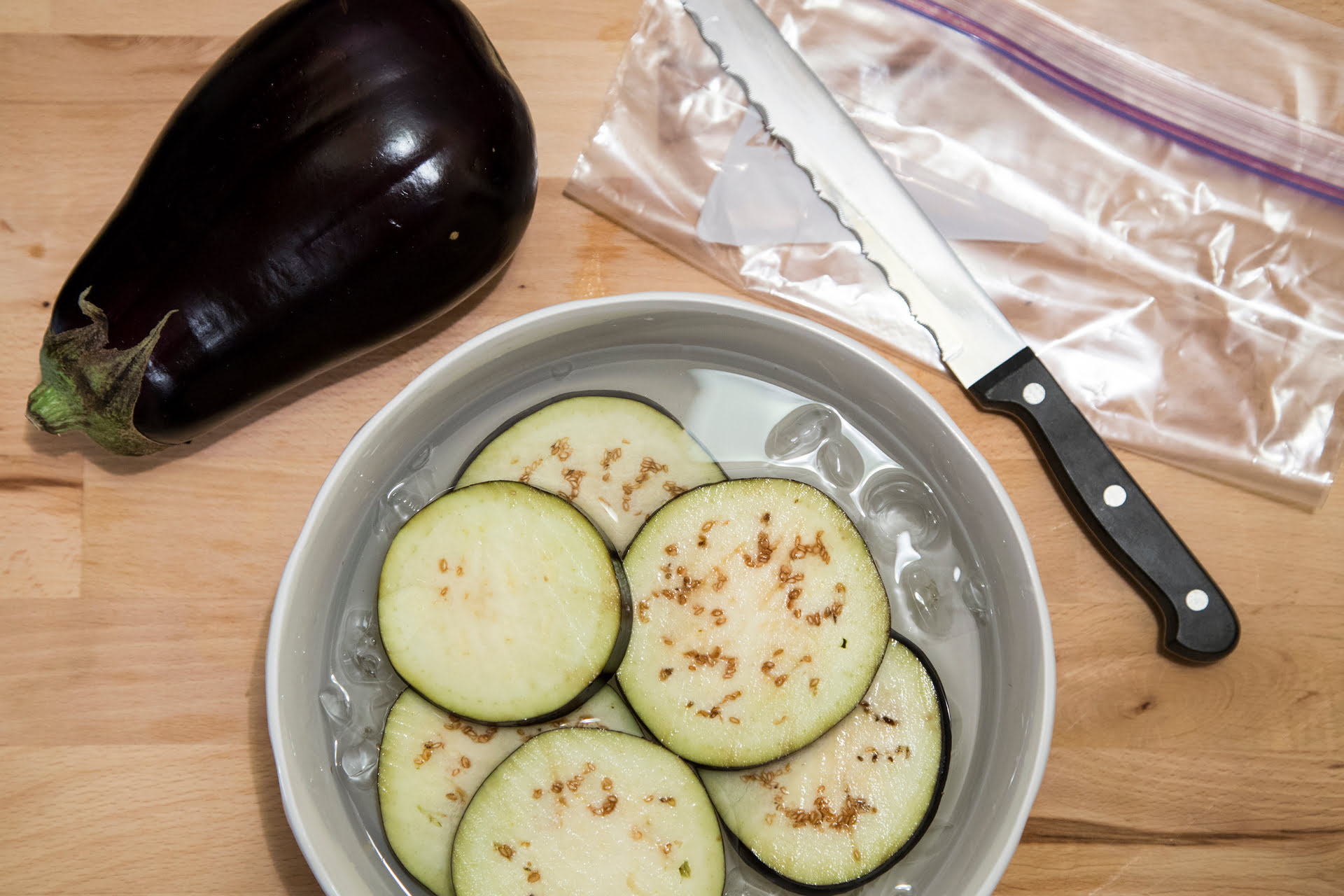

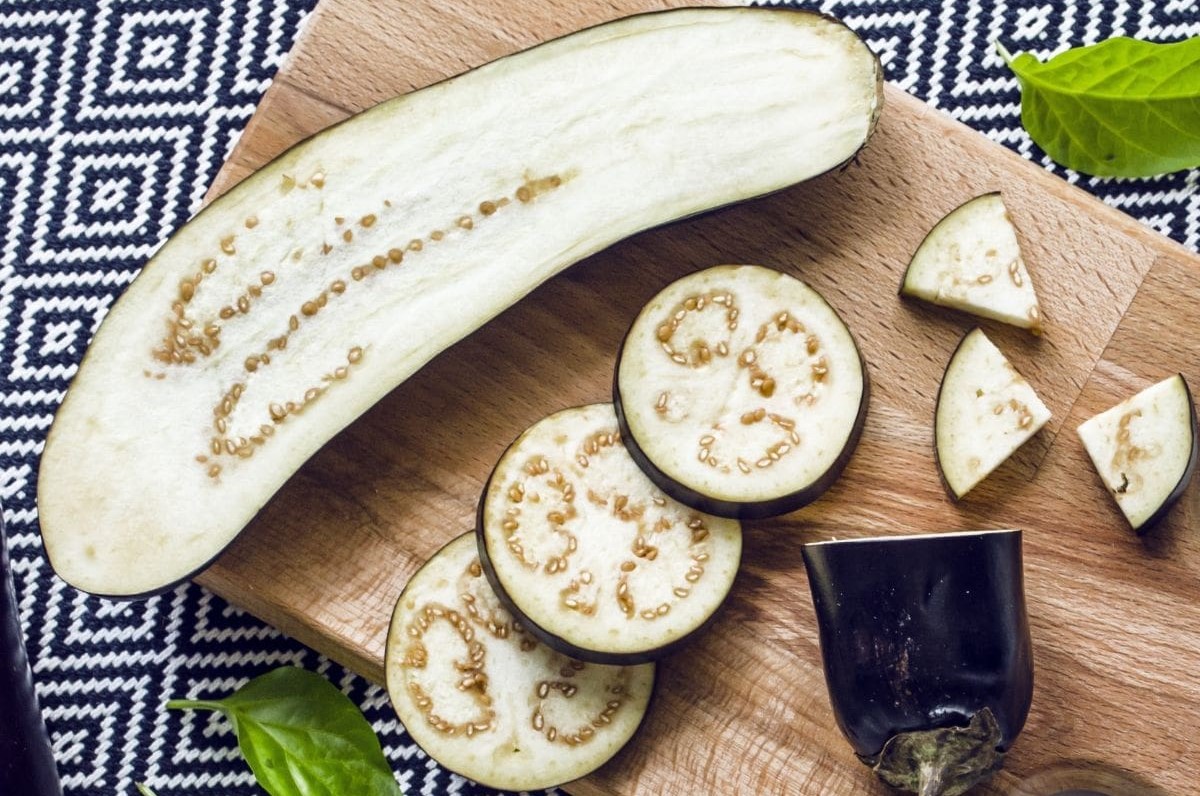
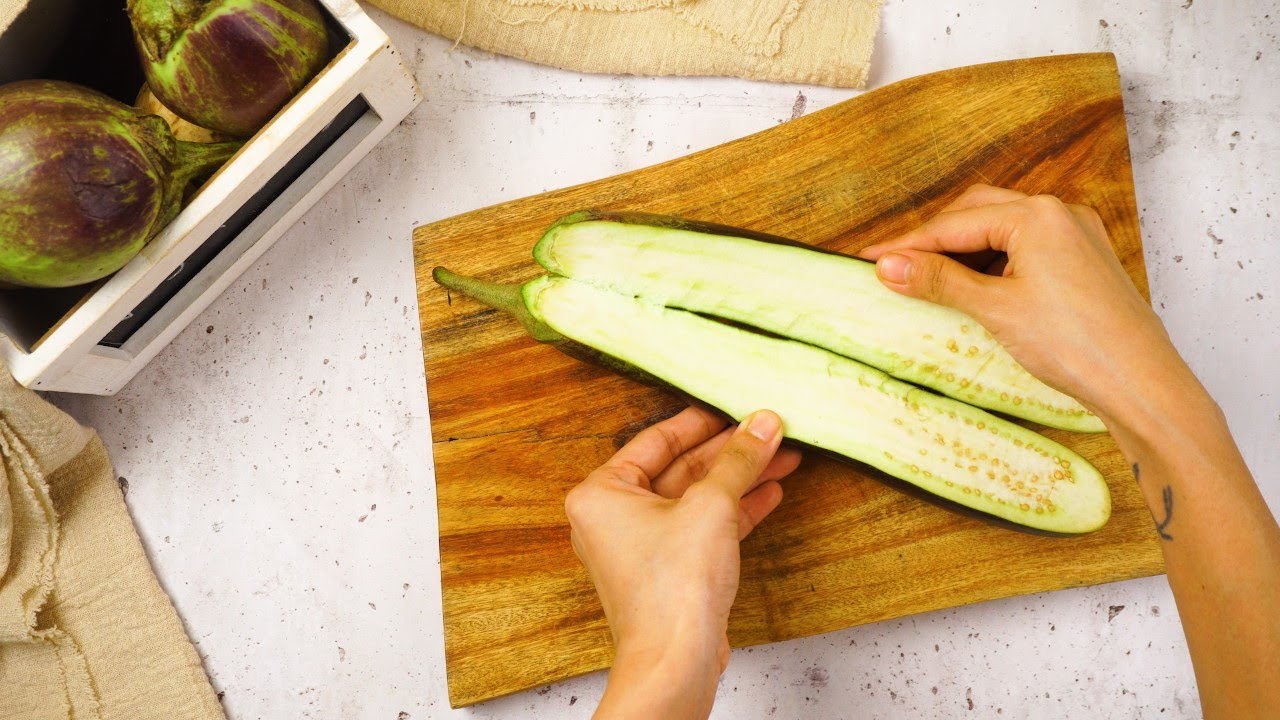
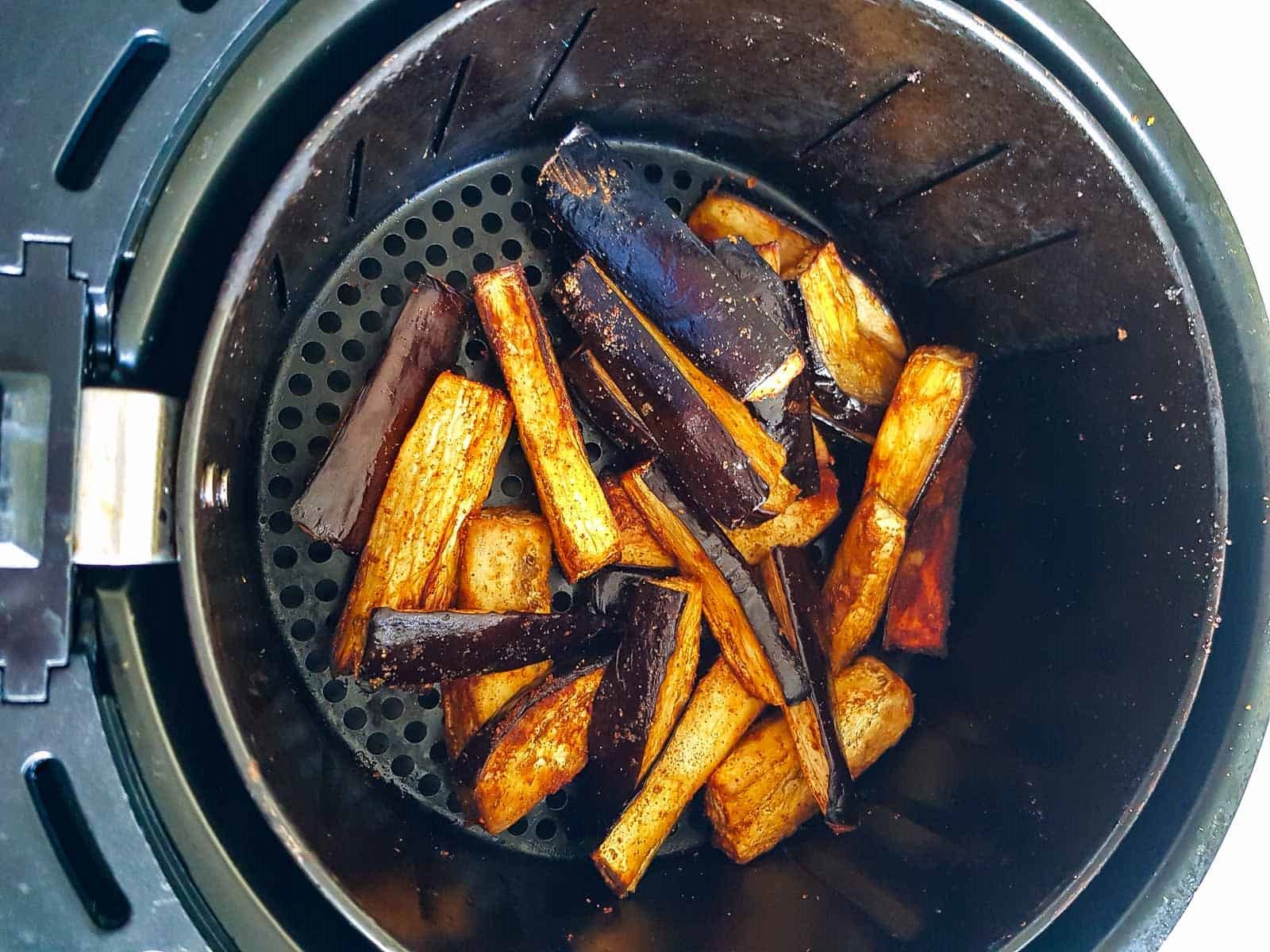



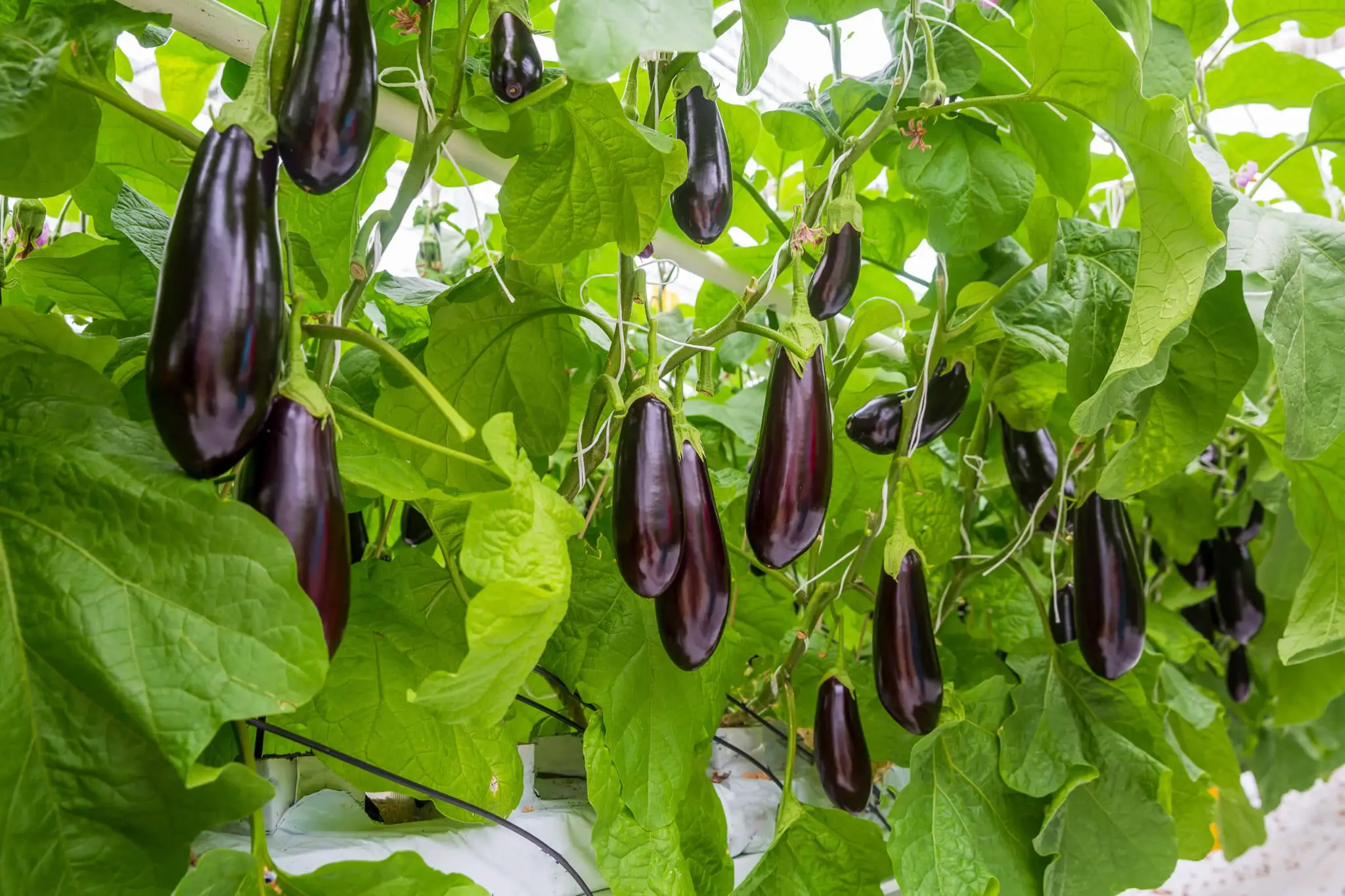
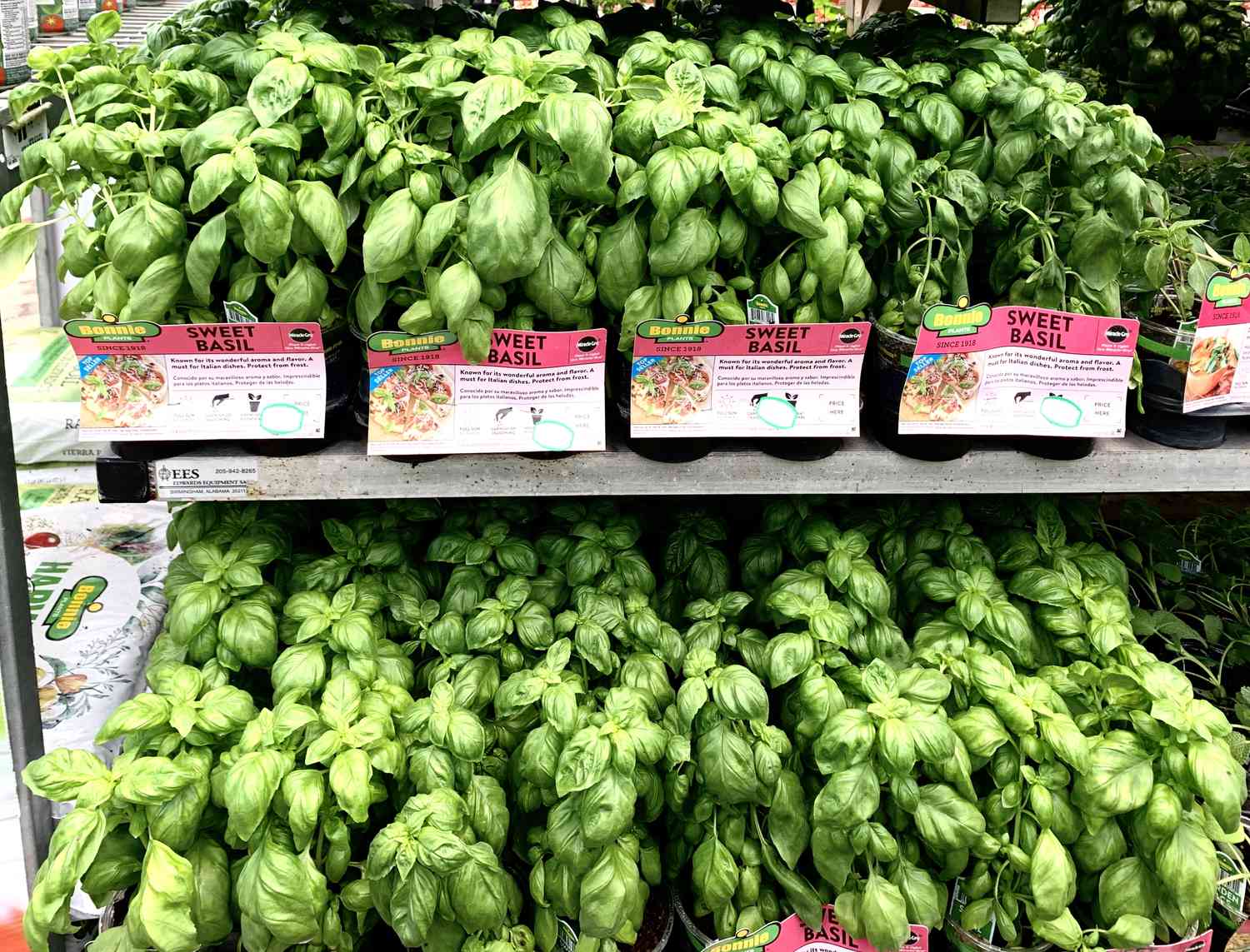

0 thoughts on “How To Store Eggplant”